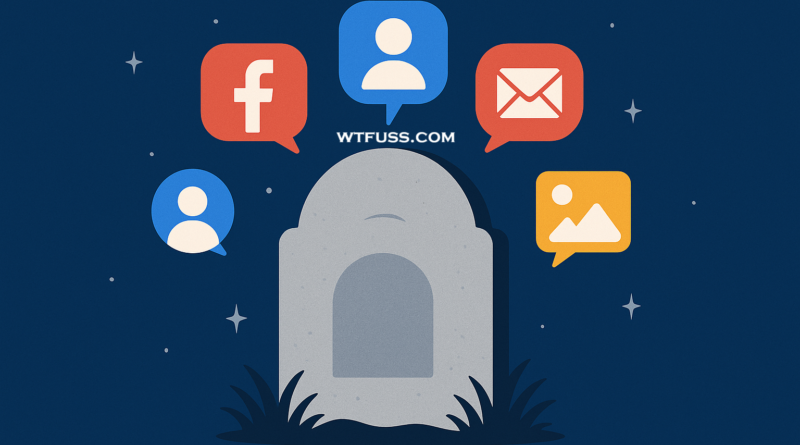What Happens to Your Data After You Die?
We prepare for everything in life—careers, vacations, even retirement. But it’s kinda curious think about something just as real and inevitable: what happens to our digital lives after we die?
So that didn’t remain a philosophical question anymore. In a world where we live online more than ever, our digital footprint—emails, photos, messages, bank accounts, even memes—doesn’t just vanish like we do!
In fact, much of it lingers. Sometimes forever.
Your Digital Ghost
Imagine this: ten years later, your Facebook profile is still active. Your WhatsApp shows “last seen.” Your old selfies live on Instagram, and Google Photos still holds your college memories in some dusty cloud folder.
Creepy? Maybe. But it’s also the reality.
Unless someone takes action, most platforms won’t automatically delete your data. Instead, you become a kind of digital ghost—alive in data, but not in life.
So, Who Owns Your Data After Death?
Here’s where things get murky.
Legally, you owned your data. But once you’re gone, it’s up to the platform’s policies—and often, your family’s access (or lack thereof).
- Facebook lets you choose a “legacy contact” or memorialize your profile.
- Google has an “Inactive Account Manager” that can send your data to someone you trust.
- Apple introduced a Digital Legacy program—but it requires prior setup.
No setup? Tough luck. In most cases, your family will face red tape, account locks, or outright denial.
What About Your Money Accounts?
When you’ve got money flowing through online wallets, stock apps, or even cryptocurrency accounts, things can get messy fast.
Unless your login details are securely shared or stored in a digital will, those funds might never be retrieved. They don’t just “go back” to your bank. Some platforms may require a court order to even talk to your family.
For crypto? If you didn’t share the private key… that money is lost. Forever.
The Risks of Leaving Your Data Behind
Not taking action doesn’t just leave things hanging. It creates real risks:
- Identity theft: Hackers sometimes target deceased profiles.
- Emotional trauma: Loved ones getting birthday reminders or friend suggestions from someone who’s passed.
- Unwanted access: Strangers (or enemies) might get access to your personal memories.
How to Take Control—Before It’s Too Late
You don’t need to be a tech nerd to protect your digital afterlife. Here’s what you can do:
✅ Set up legacy contacts on major platforms (Facebook, Apple, Google).
✅ Create a digital will—include passwords or access instructions (store them safely).
✅ Use a password manager like 1Password or LastPass and grant trusted people access via emergency protocols.
✅ Tell someone you trust about your online accounts. Silence isn’t security. It’s chaos.
So… Is Your Life Worth More Than a Login?
It might feel dark to think about this stuff. But planning your digital legacy is really about showing care for the people you love. It’s about not letting your online identity float forever—vulnerable, confusing, and incomplete.
In an age where data is identity, maybe the most human thing we can do is handle our digital lives like we do our real ones: with intention, honesty, and a little planning.
Because your story deserves a better ending than just a forgotten password..!



